San Francisco could bring nearly half of all of the unhoused people in the city into safe affordable housing in a very short period of time using existing local, state, and federal funding, the Coalition on Homelessness concludes in a report released last week.
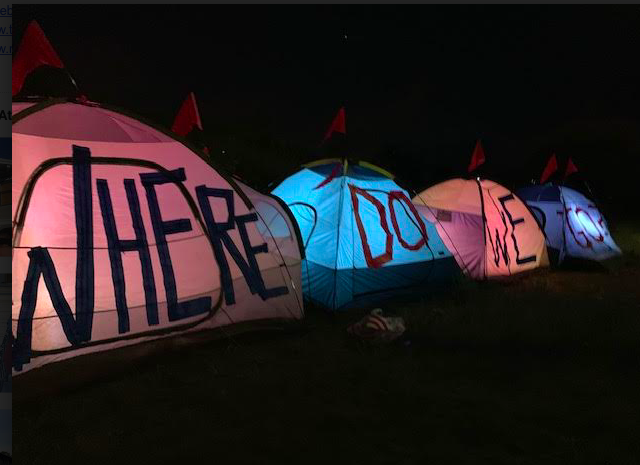
“We believe we have a magical moment — the real estate, the money and the know how to make the dream of a home a reality for five times as many people as the mayor’s predecessors were able to do,” Jennifer Friedenbach, director of the coalition, said.
The report, which you can read here, goes through the numbers in detail. It demonstrates that the cost of keeping people housed is far lower than the cost of serving them when they are on the streets. And it notes that the city has “a golden opportunity” to make massive strides on what many say is the most critical issue in San Francisco:
There are currently at least 8,000 unhoused San Franciscans; and thousands more low-income families and individuals are at risk of losing their homes. In addition, studies demonstrate that we spend far more on emergency room, hospital and other social service costs by forcing someone to remain tethered to a state of homelessness than it would cost to house that same individual. We cannot afford to go back to the failed policies that led to this crisis. Our people need real solutions––and the good news is that the pandemic has opened up a golden opportunity to make major changes that will permanently address homelessness and the lack of truly affordable housing in our City.
With unprecedented amounts of Federal, State and local (Prop C) funding available, and rare amounts of real estate for sale at lower prices than usual, we need to seize the moment and acquire at least 1,000 units of housing now.
The study notes that a survey sent to the owners of smaller hotels in San Francisco showed that more than 70 are open to either selling their property or giving the city a long-term lease.
We’re not talking about the Hilton or the Marriott here; these are hotels that will probably be empty or have low occupancy for several years to come as tourism slowly returns.
“Many of these could be converted to studios easily, require little rehabilitation, have elevators, and would be available at half the cost of new construction,” the study says.
And there’s money available, both from Prop. C and from state and federal sources. That’s the most remarkable thing about this study: It identifies exactly where the money is, right now, for the city to acquire 1,590 units of permanently affordable housing.
It’s way cheaper to buy and retrofit hotels:
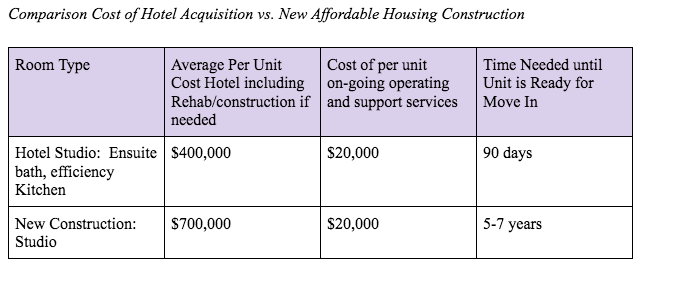
And there’s a lot of state money – right now, but it won’t be there forever. Here’s what the state is offering:
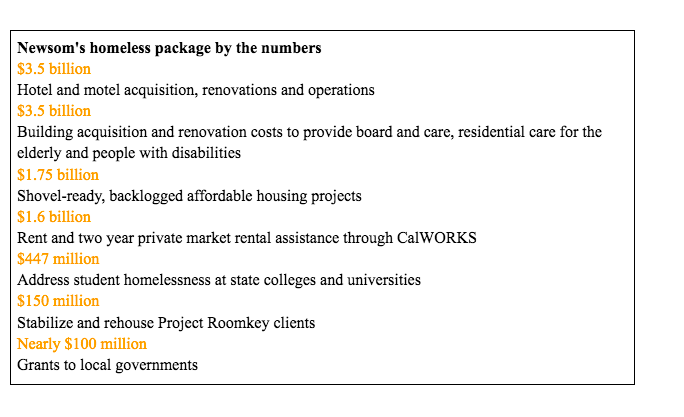
Here’s how the money could add up:
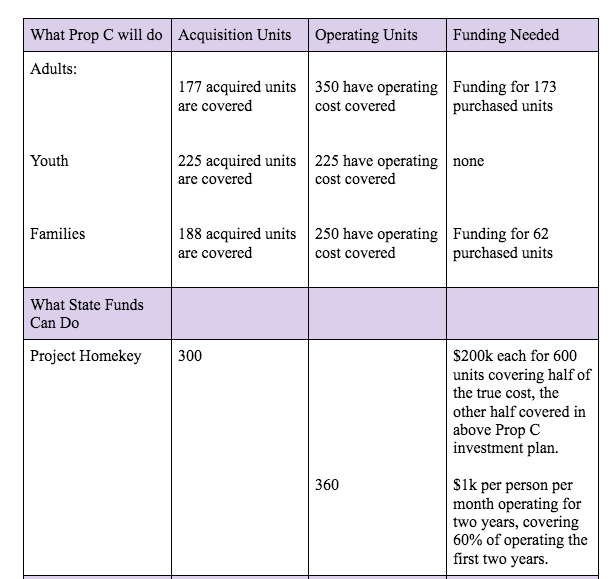
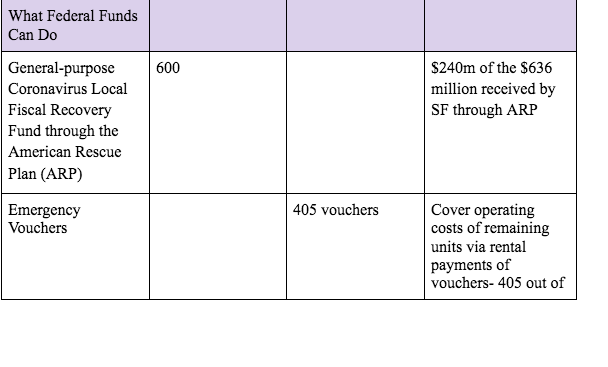
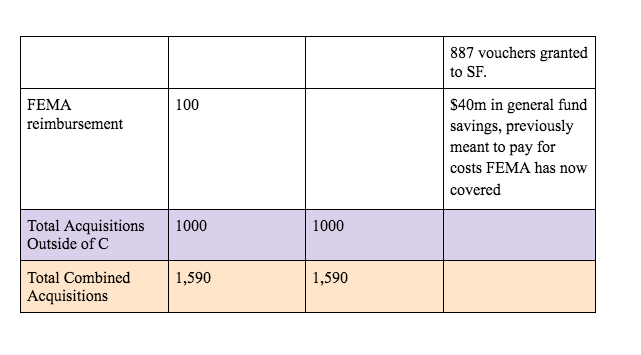
The report concludes that Mayor London Breed has “a generational opportunity to save countless lives.” She could “significantly, permanently, and visibly reduce homelessness.”
Consider:
The 1,590 unit acquisitions, added to the Prop C investment plan of 1,695 permanent private market rental subsidies and 540 two-year private market rental subsidies, would result in a total of 3,825 unhoused households leaving homelessness behind them, while preventing homelessness for at least another 7,000 households each year, and adding hundreds of beds to our mental health and substance use treatment system. For comparison, in a typical year pre-pandemic, San Francisco was bringing about 780 unhoused households into housing each year. With this investment, Mayor Breed would house almost 50 percent of the current Point in Time Count, five times the number of unhoused individuals housed by her predecessors.
Imagine: Cutting homelessness in half, in just a year or two, by moving people into safe spaces with social-services support.
Breed is happy to move toward more cops into mid-Market (where a lot of unhoused people live). Friedenebach told me:
I think we have learned the hard and long way that police are not an appropriate nor effective response to socioeconomic and health issues. If we want to address homelessness, we know housing works. If we want to address drug addiction, we know treatment works. If we want to address underground economies, we know providing opportunities for dignified employment works.
Imagine what would happen if we had the leadership from the Mayor’s Office to do this.







